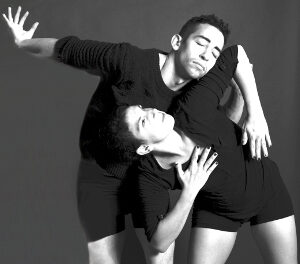The once thriving summer chamber music concert series at Duke University’s Kirby Horton Hall has of late been reduced to a mere three performances. Jointly presented under the auspices of Duke Gardens, the Duke University Department of Music and the Ciompi Quartet, this program was completely changed from the original as advertised during most of the summer. What resulted was a wonderfully eclectic evening of works, instrumental compositions and composers one doesn’t usually encounter.
Although the very informative printed program headlined “Ciompi Quartet presents,” it fell to cellist Fred Raimi to serve as the sole representative of Duke University’s most valued and visible artistic treasure. He explained some of the reasoning behind the major programming changes and then took up his priceless 17th century Italian cello to play one of the most difficult works in the instrument’s repertory: J.S. Bach’s C minor Suite for solo cello, S. 1011. Originally written to be played with the A-string tuned down to G, it is now nearly always played with the cello’s standard tuning. Raimi played this monumental suite with his usual burnished and lush tone as well as a deeply emotional interpretation and phrasing. He did have several memory slips in the Prelude but always recovered quickly. Bach, played without a net, can be one of the most frightening and daunting tasks for any musician and it is the sign of a seasoned professional to not get rattled and calmly work his way out of these inevitable moments.
Next up was an early work of Beethoven: the Opus 11 Trio for piano, clarinet (or violin) and cello (or possibly bassoon). It has the nickname of the “Gassenhauer Trio” based on a melody from a popular opera of the day. The performers of this very appealing work were truly an all-star team: Bonnie Thron, principal cellist of the North Carolina Symphony, Fred Jacobowitz, Juilliard graduate on clarinet, and Jeremy Thompson, international concert pianist as well as an accomplished organist. This is a typical three-movement Beethoven work that has a ravishing slow, lyrical central movement flanked by a Sonata-Allegro opener and a theme and variations finale. The theme of that final movement (from which the nickname comes) is one of those seemingly vapid, silly musical ideas that Beethoven transforms into both profundity and a vehicle for flights of virtuosic displays by the performers. This was a superb performance not only for the expected technical brilliance of the players, but their obvious joy in the music and for the opportunity to share that with all of us in the audience.
The second half continued with Jacobowitz serving not only as the featured clarinetist, but the unofficial host and raconteur regarding the lesser-known composers and their works. The stories of highly talented women composers in the early 19th century, like Clara Schumann and Fanny Mendelssohn, who were forced to subjugate their prodigious talents to the societal prejudices against female composers, did not end in the 20th century. Rebecca Clarke (1886-1979) was a British composer who despite numerous encounters of male condescension left a body of work that — if tonight’s work is an indication — rivals that of any of her contemporaries. We heard Prelude, Allegro and Pastorale for clarinet and viola, written in 1941. Joining Jacobowitz was violist Kirsten Swanson, a stunning musician with flawless technique combined with that unique “viola sound” that can melt your soul. Much of the murmuring after this performance boiled down to “what an incredible piece of music; why haven’t we heard this before.” The influence of Debussy and Vaughan Williams is unmistakable, but this is till clearly Clarke’s own special voice and is, to me, a loud call to hear more of her music.
Another female composer, Shulamit Ran (b. 1949), was up next and was as equally eye and ear-opening as was Clarke. Apparently winning the Pulitzer Prize for music, as she did in 1990 for Symphony, is not sufficient to gain widespread exposure, although it obviously cannot be said that it is just her gender that is responsible for that. The musical and marriage partners of Thron and Jacobowitz played her Private Games for clarinet and ‘cello. This brief work is a jagged, virtuosic series of somewhat disjointed gestures that still somehow impart a lyrical underpinning. The duo, both as one entity and individually, tossed off many treacherous passages with seeming ease and grace.
Having noticed lately that my music seems to be growing blurry all by itself, I can empathize with the subtitle of “with 2 Eyeglasses Obbligato” for Beethoven’s Duo for viola and cello. This is another Beethoven work that transforms a rather uninteresting theme to heights of virtuosity and mines amazing ideas. Swanson and Thron again dazzled with their brilliant execution and emotional connection with the listener.
The program ended with a more well-known composer than the two women heard before, but also a seldom heard work. Max Bruch’s 8 Studies Op. 83 for clarinet, viola and piano, written in 1910, is an alto range collection of widely varying styles and affects. The Thompson/Jacobowitz/Swanson trio played numbers 2, 5, 6 and 7 from this collection. The word “studies” in the title is somewhat false advertising as these are each full concert pieces that are quite lovely, captivating and terrific vehicles for the musicians; a great ending to an evening of unique musical recipes.











